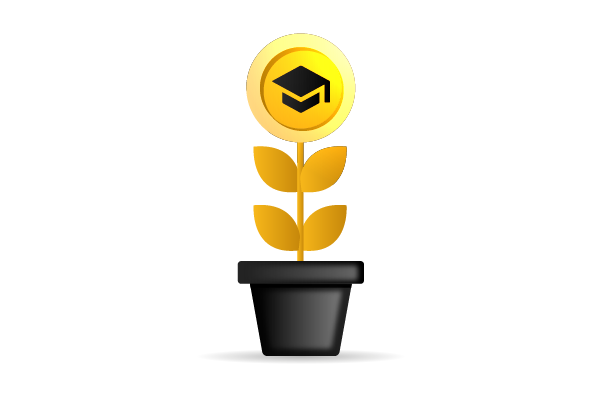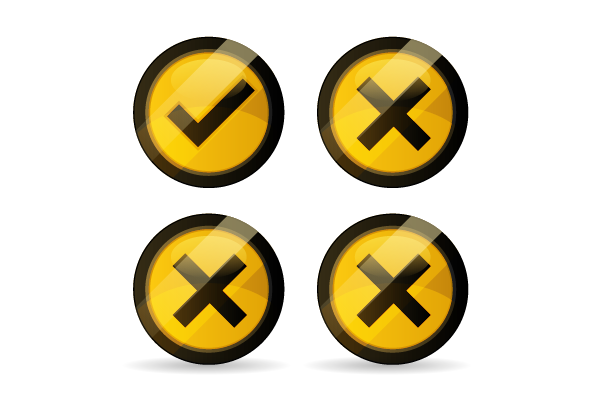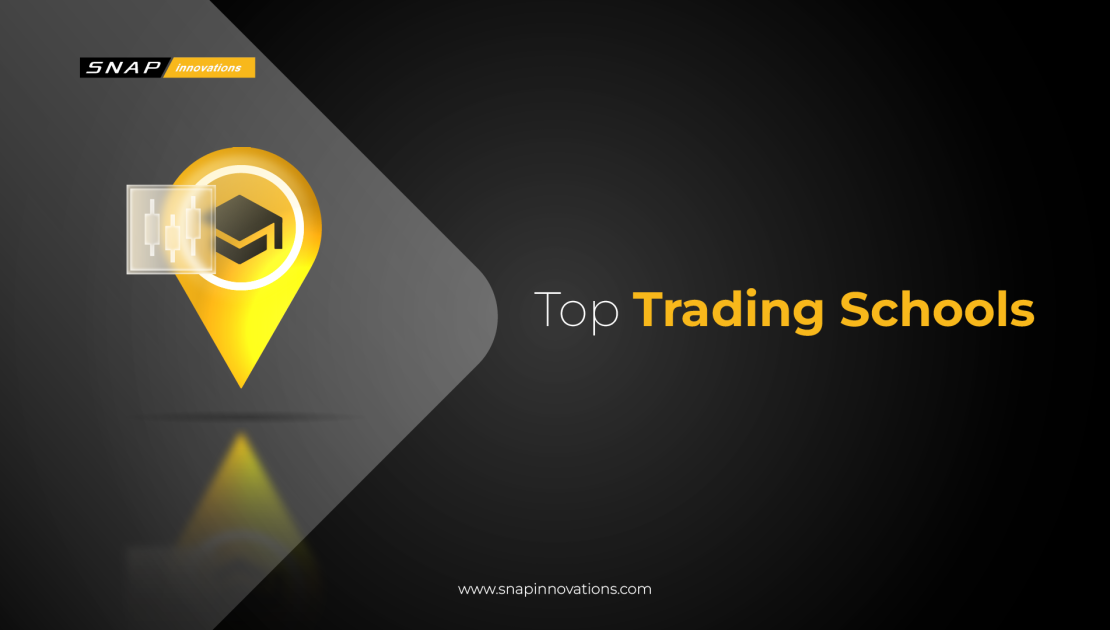The journey to becoming a proficient trader is paved with challenges, uncertainties, and a steep learning curve. In this ever-evolving market, the role of comprehensive education cannot be overstated. Trading schools have emerged as beacons of knowledge, offering specialized programs designed to equip aspiring traders with the skills necessary to navigate the complexities of the financial markets successfully.
Unlike traditional academic paths, trading schools focus intensely on the practical aspects of trading, combining theoretical knowledge with hands-on experience. This article delves into the world of trading schools, shedding light on their significance, offerings, and how they can transform a novice into a savvy market participant.
As we explore the top trading schools, the evolution of trading education, and key considerations for selecting the right institution, you will gain valuable insights to guide your educational journey in trading. Whether you’re contemplating a career in trading or looking to enhance your market expertise, this guide is your starting point to understanding the pivotal role of trading schools in achieving trading excellence.
What Are Trading Schools?
 Trading schools are specialized educational institutions designed to provide individuals with the knowledge, strategies, and tools needed for successful trading. These schools offer a range of programs, from introductory courses on market basics to advanced strategies and technical analysis, catering to traders at different levels of expertise.
Trading schools are specialized educational institutions designed to provide individuals with the knowledge, strategies, and tools needed for successful trading. These schools offer a range of programs, from introductory courses on market basics to advanced strategies and technical analysis, catering to traders at different levels of expertise.
At the core of trading schools is the commitment to bridging the gap between academic finance theories and the real-world dynamics of the trading world. By offering curriculum that encompasses live trading sessions, market simulation exercises, and mentorship from experienced traders, these institutions prepare students for the rigors and realities of trading.
The distinction between trading schools and traditional financial education lies in their practical approach. While finance degrees provide a broad overview of economic principles and market theories, trading schools delve into the specifics of trading psychology, risk management, and the technical analysis essential for crafting successful trading strategies.
Read More: Low Touch Trading: Streamlining Market Transactions
Top 10 Trading Schools
When it comes to choosing a trading school, the options can be overwhelming. However, certain institutions stand out due to their comprehensive curriculum, experienced faculty, and successful alumni. Here are the top 10 trading schools that have consistently ranked high for their excellence in trading education:
1. XYZ Trading Academy
XYZ Trading Academy stands out for its immersive approach to trading education, emphasizing practical skills and real-world market analysis. With a state-of-the-art trading simulation platform, students at XYZ have the unique opportunity to practice trading strategies in a risk-free environment that mirrors current market conditions. The academy’s curriculum is designed to cover a wide range of topics, from the fundamentals of trading to advanced technical and fundamental analysis techniques, ensuring students receive a well-rounded education.
Moreover, XYZ Trading Academy prides itself on its team of instructors who are not only seasoned educators but also experienced traders. This blend of academic knowledge and practical expertise means that students receive insights and strategies that are immediately applicable in real-world trading scenarios. The academy’s commitment to small class sizes ensures personalized attention, enabling students to progress at their own pace while fostering a close-knit community of aspiring traders.
2. Alpha Financial Institute
Alpha Financial Institute is renowned for its rigorous curriculum that focuses on creating disciplined traders proficient in technical analysis and risk management. The institute offers a comprehensive program that delves deep into the psychological aspects of trading, equipping students with the resilience and mindset needed to navigate the volatile trading landscape. Alpha’s approach to education combines theoretical learning with practical applications, including live trading sessions that allow students to apply what they’ve learned in real-time.
The institute’s faculty consists of professionals who bring a wealth of experience from the trading floor to the classroom. This direct industry experience enriches the learning process, providing students with a realistic view of the trading world and its challenges. Alpha Financial Institute also emphasizes the importance of a global perspective on trading, preparing students to operate in international markets. Graduates from Alpha are known for their strategic thinking, comprehensive market analysis skills, and ethical trading practices, making them highly sought after in the financial sector.
3. Beta Trading School
Beta Trading School offers a unique blend of online and in-person learning options, catering to a diverse student body with varying needs and schedules. This flexibility ensures that more individuals have the opportunity to pursue their trading education without compromising on quality. Beta’s curriculum is extensive, covering everything from forex trading to commodities and stock market fundamentals, providing students with a broad understanding of various markets. The school’s use of cutting-edge technology in its teaching methods, including virtual trading rooms and real-time market data access, enhances the learning experience.
The school’s commitment to excellence is further demonstrated through its experienced faculty, who bring years of trading and teaching experience to the classroom. Beta Trading School emphasizes mentorship, with each student having access to a mentor who provides guidance, feedback, and support throughout their educational journey. This personalized approach helps students to not only learn trading strategies but also to understand the market dynamics and how to adapt to them, fostering a generation of informed, adaptable, and successful traders.
4. Gamma Trading University
Gamma Trading University is distinguished by its elite faculty and a strong network of alumni who have gone on to achieve success in various sectors of the financial industry. The university offers an advanced curriculum that integrates theoretical knowledge with practical trading exercises, including access to simulated trading platforms and live trading sessions. This hands-on approach ensures that students can apply their knowledge in real-time, adapting to market changes with agility and confidence.
Gamma’s curriculum also includes special modules on emerging markets, algorithmic trading, and financial technology, reflecting the latest trends in the trading world. Students benefit from the university’s partnerships with leading financial institutions, providing opportunities for internships and employment post-graduation. Gamma Trading University’s commitment to producing well-rounded, market-ready traders is evident in its comprehensive educational offerings and the ongoing support provided to its students and alumni.
5. Delta Market College
Delta Market College is celebrated for its specialized programs in algorithmic trading and financial modeling, appealing to those with a keen interest in the technological aspects of trading. The college’s approach to trading education is deeply analytical, with a strong emphasis on quantitative methods, data analysis, and the use of software tools in market prediction. Delta’s programs are designed to bridge the gap between theoretical finance and practical trading skills, preparing students for the complexities of modern trading environments.
The faculty at Delta Market College includes leading academics and practitioners who have extensive experience in quantitative finance and algorithmic trading. This ensures that students receive education that is both academically rigorous and grounded in practical application. Delta also offers exceptional resources, including access to historical data sets and the latest trading software, enabling students to conduct research and develop their trading algorithms. Graduates from Delta are well-equipped to enter the fast-paced world of algorithmic trading, backed by a solid foundation in theory and hands-on experience in strategy development and implementation.
6. Epsilon Trading School
Epsilon Trading School focuses on the psychological aspects of trading, a crucial element often overlooked in traditional trading education. Understanding that successful trading requires more than just knowledge of markets and strategies, Epsilon integrates courses on trading psychology, emotional intelligence, and stress management into its curriculum. This holistic approach prepares students to handle the psychological challenges of trading, including dealing with losses, maintaining discipline, and making decisions under pressure.
In addition to psychological training, Epsilon offers a comprehensive curriculum covering all aspects of trading, from fundamentals to advanced technical analysis. The school’s use of real-time trading simulations and live market analysis sessions ensures that students gain practical experience. Epsilon’s faculty, comprised of experienced traders and psychologists, provides students with a unique blend of insights, combining technical skills with emotional resilience. This comprehensive education model aims to produce traders who are not only technically proficient but also psychologically prepared to thrive in the trading world.
7. Zeta Trade Institute
Zeta Trade Institute prides itself on providing an immersive learning experience that closely mirrors the real trading environment. With state-of-the-art facilities, including access to live trading floors and real-time market data, students at Zeta are exposed to the pulse of the financial markets from day one. The institute’s curriculum is designed to be dynamic, adapting to the ever-changing landscape of the financial markets, ensuring that students are always learning the most current strategies and technologies.
The faculty at Zeta Trade Institute are industry veterans with decades of experience in trading and financial analysis. Their expertise is complemented by a commitment to mentorship, providing students with personalized guidance and support throughout their educational journey. Zeta’s approach to trading education emphasizes the importance of hands-on experience, with numerous opportunities for students to engage in live trading under the supervision of their instructors. This practical focus ensures that graduates are not just knowledgeable about trading theories but are also skilled in applying them in real market conditions.
8. Eta Financial Academy
Eta Financial Academy is known for its rigorous curriculum that thoroughly covers market theory, practical trading techniques, and the latest in financial technology. The academy takes a comprehensive approach to trading education, ensuring that students understand the global economic landscape and its impact on trading. Eta’s programs are designed to challenge students, fostering critical thinking, analytical skills, and a deep understanding of market dynamics.
The academy’s faculty consists of distinguished professionals and academics who bring a wealth of knowledge and experience to the classroom. Eta Financial Academy also places a strong emphasis on ethical trading practices and sustainable investing, preparing students to become responsible participants in the financial markets. With a blend of traditional teaching methods and innovative technology, Eta offers its students a robust education that prepares them for success in the competitive world of trading.
9. Theta Trading Education Center
Theta Trading Education Center specializes in commodities and futures trading, offering in-depth knowledge and strategies specific to these markets. The center’s curriculum is meticulously crafted to provide students with a thorough understanding of commodities markets, including energy, metals, and agricultural products. Theta’s approach combines theoretical knowledge with practical insights, ensuring that students can navigate the complexities of futures trading with confidence.
The center boasts a team of instructors who are not only experts in their fields but also active traders with firsthand experience in the commodities markets. This direct industry experience enriches the learning process, as students benefit from real-world examples and case studies. Theta Trading Education Center also provides access to specialized trading platforms and tools, allowing students to practice trading strategies and analyze market trends. Graduates from Theta are equipped with the specialized skills and knowledge needed to excel in the dynamic world of commodities and futures trading.
10. Iota School of Trading
Iota School of Trading is celebrated for its mentorship program, which is central to its educational philosophy. Each student is paired with an experienced trader, providing personalized guidance and insights throughout their learning journey. This one-on-one mentorship allows for tailored advice and feedback, helping students to refine their trading strategies and navigate the complexities of the market with confidence.
Iota’s curriculum covers a broad spectrum of trading disciplines, from stock market fundamentals to advanced technical analysis and portfolio management. The school emphasizes the importance of continuous learning and adaptation, reflecting the ever-evolving nature of the financial markets. With a focus on practical skills and real-world applicability, Iota School of Trading ensures that students are well-prepared to enter the trading world, equipped with the knowledge, strategies, and support network necessary for success.
The Evolution of Trading Education
 Trading education has undergone significant transformation over the years, evolving from traditional classroom-based instruction to incorporating online and simulated trading environments. This evolution reflects changes in the financial markets themselves, which have become more complex and technologically driven.
Trading education has undergone significant transformation over the years, evolving from traditional classroom-based instruction to incorporating online and simulated trading environments. This evolution reflects changes in the financial markets themselves, which have become more complex and technologically driven.
The advent of the internet and digital platforms has revolutionized trading education, making it more accessible and interactive. Online courses, webinars, and virtual trading simulations allow students to learn and practice trading from anywhere in the world. This has democratized trading education, opening up opportunities for a wider audience beyond those who could attend physical trading schools or afford expensive courses.
Technological advancements have also introduced sophisticated tools and software into trading education, enabling real-time market analysis, algorithmic trading strategies, and the use of artificial intelligence for market prediction. These tools have become integral parts of the curriculum, preparing students for a trading environment that is increasingly reliant on technology.
Looking ahead, trading education is likely to continue evolving with the advancement of technology. Virtual reality (VR) and augmented reality (AR) could become standard tools for simulating trading environments, offering even more immersive and realistic training experiences. The focus will also increasingly shift towards teaching ethical trading practices and sustainability, reflecting broader societal shifts towards responsible investing.
How to Choose the Right Trading School for You
Choosing the right trading school is a critical decision that can significantly impact your trading career. Here are key factors to consider when making your choice:
- Personal Goals and Trading Style: Reflect on your trading goals and the style you are most comfortable with. Whether it’s day trading, swing trading, or investing, ensure the school you choose offers courses that align with your interests and goals.
- Accreditation and Reputation: Look for schools with a solid reputation and accreditation from recognized financial education bodies. Testimonials and success stories from alumni can also provide insights into the school’s effectiveness.
- Curriculum and Faculty: Examine the curriculum carefully to ensure it covers the topics and strategies you’re interested in. The experience and qualifications of the faculty are also crucial, as they will be your mentors and guides.
The Role of Practice and Real-world Experience
 In the realm of trading education, the significance of practice and real-world experience cannot be overstated. Theoretical knowledge, while foundational, only paints part of the picture. The true essence of trading—with its unpredictability, emotional rollercoasters, and the need for swift decision-making—can only be fully grasped through hands-on experience. Trading schools that prioritize practical learning offer a more rounded education, preparing students for the realities they will face in the markets.
In the realm of trading education, the significance of practice and real-world experience cannot be overstated. Theoretical knowledge, while foundational, only paints part of the picture. The true essence of trading—with its unpredictability, emotional rollercoasters, and the need for swift decision-making—can only be fully grasped through hands-on experience. Trading schools that prioritize practical learning offer a more rounded education, preparing students for the realities they will face in the markets.
Integrating Simulated Trading Environments
Many top trading schools incorporate simulated trading platforms that mimic real market conditions. These simulations allow students to practice trading with virtual currency, testing out strategies, and making decisions based on live market data without any financial risk. This safe, controlled environment is invaluable for building confidence and competence.
Live Market Analysis Sessions
Some institutions go a step further by offering live market analysis sessions. In these sessions, students get the opportunity to observe and participate in real-time trading, guided by experienced traders. This direct exposure to market dynamics and decision-making processes offers insights that are impossible to gain from textbooks alone.
Mentorship and Peer Review
The role of mentorship in trading education is profound. Schools that facilitate one-on-one mentorship or small group sessions provide personalized feedback and guidance, helping students refine their strategies and approach. Similarly, peer review sessions encourage collaboration and exchange of ideas, fostering a community of learning where students can grow together.
Success Stories and Testimonials
The testimonials of successful alumni serve as a testament to the effectiveness of practical learning. These success stories not only inspire but also provide concrete examples of how theoretical knowledge combined with practical experience can lead to real-world success in trading.
Through a blend of simulated environments, live sessions, mentorship, and community learning, trading schools offer a comprehensive education that bridges the gap between theory and practice. This holistic approach ensures that graduates are not just knowledgeable but are also adaptable and resilient in the face of market challenges.
Read Next: Trading Roadmap: Your Guide to Navigating the Financial Markets
Conclusion
Embarking on a journey in trading can be both exciting and daunting. The choice of trading school is a pivotal decision that lays the foundation for your future success in the financial markets. As we’ve explored, the best trading schools offer a blend of theoretical knowledge and practical experience, taught by experienced professionals in a supportive and dynamic learning environment.
When selecting a trading school, consider your personal trading goals, the style of trading you’re interested in, and the specific skills you wish to acquire. Look for institutions that not only cover the fundamentals of trading but also provide real-world trading experiences, access to modern trading tools, and a supportive community. The reputation and accreditation of the school, the expertise of its faculty, and the success of its alumni are also critical factors to consider.
Remember, the path to becoming a proficient trader is unique for each individual, and there is no one-size-fits-all solution. By choosing a trading school that aligns with your personal and professional aspirations, you set the stage for a fulfilling and successful career in trading. Take the time to research, ask questions, and reflect on what you truly seek from your trading education. With the right preparation and education, the world of trading offers limitless possibilities for growth, challenge, and success.

